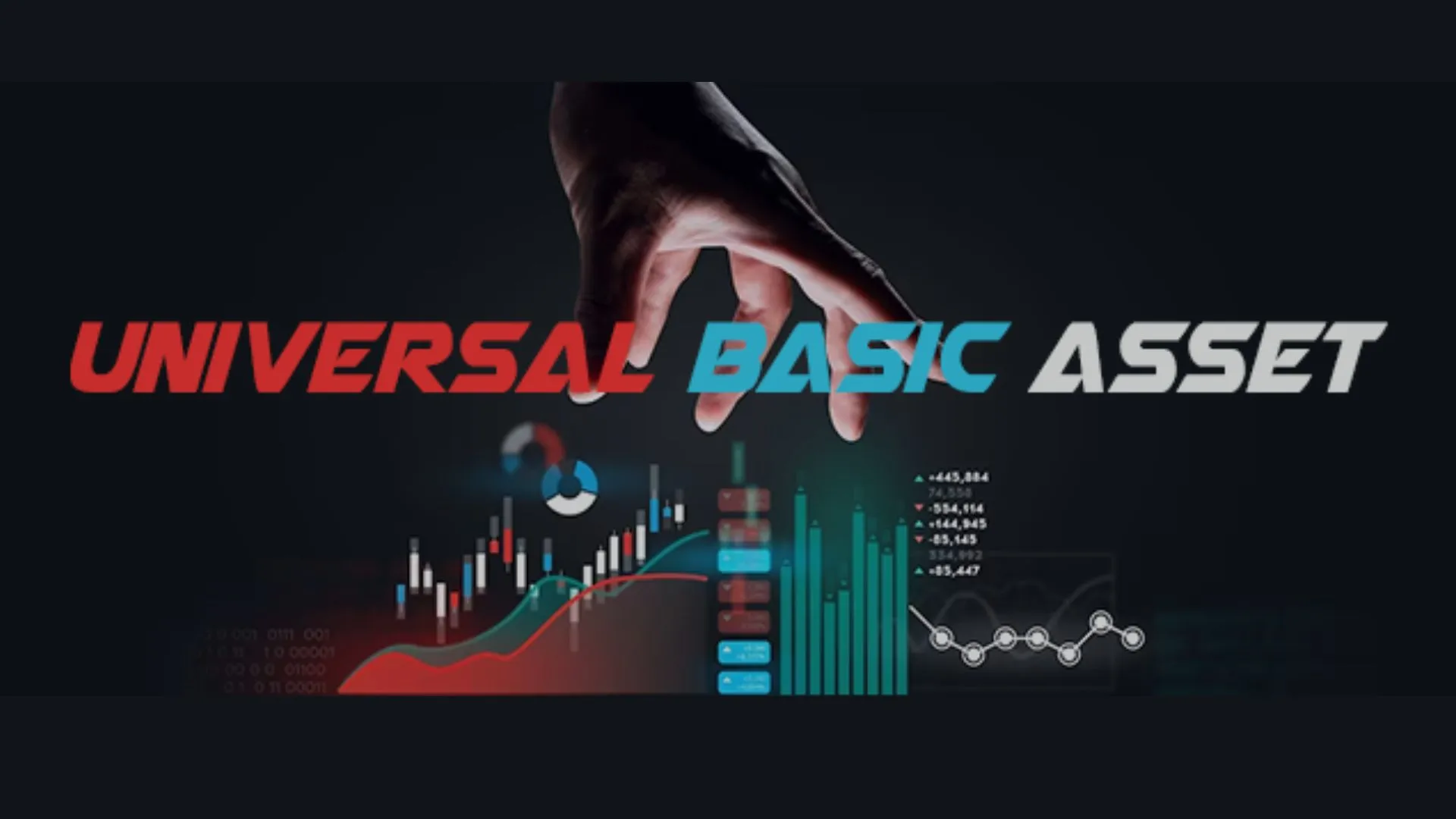A Universal Basic Asset (UBA) is a proposal for a new economic model that aims to provide all citizens with a basic level of financial security and resources. Unlike the more commonly discussed Universal Basic Income (UBI), which provides a regular cash payment, a UBA would give individuals a direct stake in the wealth and productive assets of a country or region.
The core idea behind a UBA is that every citizen should have a right to a share of the collective wealth and resources of their society, rather than relying solely on earned income from employment. This could take the form of a citizens’ capital fund, where a portion of national assets and revenues are used to purchase ownership stakes in companies, real estate, natural resources, and other productive assets. The returns from these assets would then be distributed equally to all citizens on a regular basis.
Proponents of the UBA concept argue that it has several advantages over a traditional UBI. First, by providing an ownership stake rather than just a cash payment, a UBA could help build long-term wealth and financial resilience for citizens. The asset-based approach is also seen as more sustainable, as it ties the UBA to the underlying productivity and growth of the economy, rather than relying entirely on tax revenue.
Additionally, a UBA could incentivize citizens to be more engaged and invested in the success of the economy and the management of public resources. By having a direct stake in the nation’s prosperity, people may be more motivated to support policies and decisions that promote sustainable development and efficient use of assets.
The Historical Context of Universal Basic Assets
The idea of a UBA has roots in a variety of economic and political theories, including:
Stakeholder Capitalism
The concept of stakeholder capitalism, which emerged in the late 20th century, argues that businesses should be run not just for the benefit of shareholders, but for the benefit of all stakeholders, including employees, customers, and the broader community. A UBA can be seen as an extension of this idea to the level of the entire economy, where all citizens are given a direct stake in the nation’s productive assets.
Georgism and Land Value Taxation
The economic philosophy of Georgism, developed in the late 19th century by Henry George, advocates for the public ownership and taxation of land and natural resources. A UBA can be seen as a way to implement this idea by using the revenue from these public assets to provide a universal ownership stake for citizens.
Citizen’s Wealth Funds
The concept of a citizen’s wealth fund, where a portion of a country’s natural resource wealth or other public assets are managed on behalf of all citizens, has been implemented in various forms around the world, such as the Alaska Permanent Fund in the United States and the Sovereign Wealth Fund of Norway.
Stakeholder Theory
Stakeholder theory, developed by management scholars in the 1980s and 1990s, argues that businesses should consider the interests of all stakeholders, not just shareholders, in their decision-making. A UBA can be seen as a way to extend this principle to the broader economy, where all citizens are treated as stakeholders.
Catholic Social Teaching
The Catholic social teaching principle of the “universal destination of goods” holds that the world’s resources should be used for the benefit of all people, not just a privileged few. A UBA can be seen as a way to implement this principle by ensuring that all citizens have a stake in the collective wealth of society.

Implementing a Universal Basic Asset
The specific implementation of a UBA would vary depending on the context and goals of the policy, but some common elements could include:
Establishing a Citizen’s Wealth Fund
At the core of a UBA would be a Citizen’s Wealth Fund, a pool of public assets and resources that are managed on behalf of all citizens. This could include:
- Equity stakes in publicly traded companies
- Ownership of real estate and natural resources
- Revenue from the taxation of land, natural resources, and other public assets
- Returns from investments in infrastructure, technology, and other productive assets
Distributing the Returns
The returns generated by the Citizen’s Wealth Fund would be distributed to all citizens on a regular basis, either in the form of cash payments or as additional ownership shares in the fund. The distribution could be equal for all citizens, or it could be designed to be more progressive, with larger shares going to lower-income individuals.
Funding the Citizen’s Wealth Fund
The initial funding for the Citizen’s Wealth Fund could come from a variety of sources, such as:
- Privatization of state-owned enterprises
- Taxes on land, natural resources, and other public assets
- Revenues from the exploitation of natural resources
- Reallocation of existing social welfare programs
- Borrowing against future revenue streams
Governance and Management
The Citizen’s Wealth Fund would need to be governed and managed in a way that ensures transparency, accountability, and long-term sustainability. This could involve a combination of government oversight, independent management, and citizen participation in decision-making.
Integrating with Existing Social Welfare Programs
A UBA would likely need to be integrated with existing social welfare programs, such as unemployment benefits, healthcare, and education, to ensure a comprehensive and effective social safety net. The UBA could potentially replace or complement these programs, depending on the specific policy design.
Potential Benefits of a Universal Basic Asset
Proponents of a UBA argue that it could provide a number of benefits, including:
Reducing Inequality and Increasing Financial Security
By providing all citizens with a stake in the nation’s wealth and productive assets, a UBA could help reduce income and wealth inequality and provide a more solid financial foundation for all members of society.
Promoting Economic Stability and Resilience
The asset-based approach of a UBA could make the economy more resilient to economic shocks and fluctuations, as the returns from the Citizen’s Wealth Fund would provide a stable source of income that is less dependent on the ups and downs of the labor market.
Encouraging Sustainable Development
By aligning the interests of citizens with the long-term health and productivity of the economy, a UBA could incentivize more sustainable and responsible management of natural resources, public infrastructure, and other productive assets.
Increasing Civic Engagement and Participation
By giving all citizens a direct stake in the economy, a UBA could increase people’s engagement with and investment in the success of their community and country, potentially leading to more active participation in political and economic decision-making.
Providing a Flexible and Adaptable Safety Net
A UBA could provide a more flexible and adaptable social safety net than traditional welfare programs, as the asset-based approach could be more responsive to changing economic conditions and individual needs.
Potential Challenges and Criticisms
While the idea of a UBA has garnered increasing attention and support in recent years, it also faces a number of potential challenges and criticisms, including:
Funding and Fiscal Sustainability
Establishing and maintaining a Citizen’s Wealth Fund of sufficient size to provide meaningful returns to all citizens would require significant upfront investment and ongoing funding sources, which could be politically and economically challenging to secure.
Wealth Concentration and Asset Bubbles
If the Citizen’s Wealth Fund is not managed carefully, it could potentially contribute to the concentration of wealth and the formation of asset bubbles, which could undermine the stability and equitable distribution of the UBA.
Governance and Accountability
Ensuring transparent and accountable governance of the Citizen’s Wealth Fund would be crucial, as mismanagement or corruption could erode public trust and undermine the effectiveness of the UBA.
Integration with Existing Social Programs
Integrating a UBA with existing social welfare programs, such as healthcare, education, and income support, would require careful policy design and coordination to avoid disrupting or undermining these essential services.
Potential Disincentives to Work
Some critics argue that a UBA could reduce the incentive for people to work, as they would have a reliable source of income regardless of their employment status. However, proponents argue that a UBA could actually increase economic participation by providing a safety net that enables people to take more entrepreneurial risks or pursue education and training.
Conclusion
The idea of a Universal Basic Asset (UBA) represents a significant shift in how we think about the relationship between citizens and the wealth and productive assets of a society. By providing all citizens with a direct stake in the collective resources and prosperity of their country or region, a UBA has the potential to reduce inequality, increase financial security, and promote more sustainable and equitable economic development.
While the implementation of a UBA would face significant challenges, particularly in terms of funding and governance, the potential benefits of this approach make it a compelling and increasingly discussed policy proposal. As with any major economic transformation, the success of a UBA would depend on careful design, thorough consideration of potential tradeoffs, and a sustained commitment to the principles of shared ownership and collective prosperity.
As we continue to grapple with the challenges of the 21st century, from technological disruption to climate change, the idea of a Universal Basic Asset may offer a path towards a more resilient, inclusive, and sustainable economic model that empowers all citizens to be active stakeholders in the future of their communities and their world.

